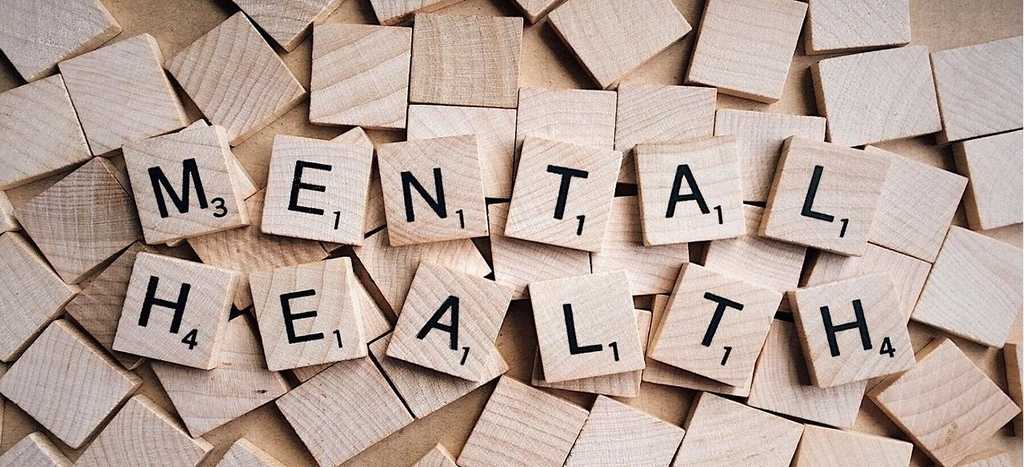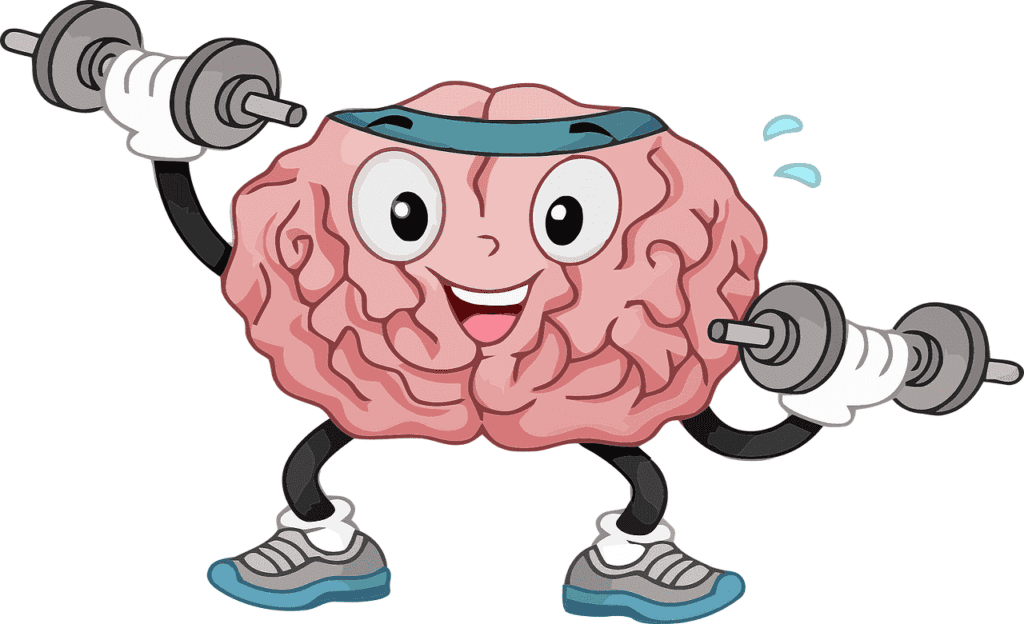In The Mental Health Benefits of Exercise The mere word of an exercise may remind many people of good physical fitness — flat muscles, fat-free figures and general wellbeing. Sure, you know exercise is important for your body. But did you know that it’s just as important for your mind? The Mental Health Benefits of Exercise is that Physical activity will trigger happiness, reduce stress and have a more nurturing mindset. I will discuss the Mental Health Benefits of Exercise & tell you why it is imperative per se to inculcate exercise into your daily schedule.
-
Mental Health Benefits of Exercise
We all know that exercise is good for our bodies but does it help the brain? Your physical health and mental health are connected. Moving your body fosters the creation of chemicals in your brain that make you feel good and you relax and makes you overall happy.
Mind-Body connection is a two-way street. Take care of one and the other follows. Exercise is something that can help not only with symptoms of stress, but anxiety and even depression, as well as more severe forms of mental health issue such PTSD or ADHD.
-
The Meaning of How Exercise Will help Relieve Related Stress and Anxiety
We live in a world that is spiraling out of control where stress and running from one thing to another is just the norm. Although exercise can serve as an inborn stress-buster. When you exercise your body release endorphins (sometimes referred to as “feel-good” hormones). Those endorphins are released, which have a way of attacking stress and leaving you feeling calm and relaxed.
The body’s stress hormone, cortisol, is also reduced by exercise. With regular exercise, your body will become more adept at dealing with stress and you won’t be as affected by day to day pressures.
How does this work?
Exercise puts stress on your body which makes slow gradual changes into the way to body can handle physical and psychological stress. Exercise also helps you to regulate stress hormones, meaning the more regularly you train; the less likely it is that you will lose your cool.
-
Using exercise as nature intended: antidepressant
Medication and therapy help with depression, but exercise is a powerful natural antidepressant. The release of serotonin and dopamine, chemicals in the brain that affect mood greatly are encouraged by regular physical activity.
Working out can do wonders for those who may be suffering from some depression, mild or even moderate. Regular exercise can also significantly help in lessening the effects of depression, in addition to improving your sleep patterns and boosting your energy levels.
The science behind it:
Neuroplasticity Neuroplasticity is the ability of your brain to form new connections (adaptive mechanisms) and change existing ones with ease. This is important for people with depression because the condition causes emotions to be processed in not-very-beneficial way by the brain.
-
Increasing your self-esteem through exercise
One of the things we don’t often talk about is how amazingly good exercise can be for self-esteem and confidence. With physical activity, you can establish (and reach) small personal goals. This process also makes you more self-confident in the long run since you do end up getting to a point where you develop a sense of competency and success.
Exercising elevates your body image and as you feel good about yourself, it shows in your conduct every day & even happiness. From completing your first 5K to reaching that new PR at the gym, these milestones should fill you with a sense of pride and accomplishment.
The cycle of confidence:
An increase in physical health often leads to an increase in self-esteem and more exercise, a beneficial cycle.
-
4 Exercise and Cognition plus Brain Quality…
Apart from just boosting your mood, physical activity also boosts your brain. When you exercise, it gets your blood flowing in the body and to the brain, providing more oxygen and nutrients that helots our brain work at maximum potential. We know from research that regular exercise can boost memory, learning and problem-solving.
Exercise increases BDNF (Brain-Derived Neurotrophic Factor), a protein that supports the development of new neurons in the brains and enhances brain health. And as you get older, this can be especially useful — reducing your risk of cognitive decline and diseases like Alzheimer’s.
Adept at leading the mind + creativity.
Most individuals believe within the energy of the mind-body connection and realize there is certainly some clarity in their thoughts and focus right after a workout. This is important, as exercise helps to stimulate creative thinking and Mental Health Benefits of Exercise to deal with problems.
Abbreviations: AD, Alzheimer’s disease; BDNF, brain-derived neurotrophic factor
-
Social Benefits of Exercising
Physical activity does not need to be a singular thing. Participating in group fitness, playing team sports or even walking with a friend can contribute to a boost in social interactions.
Mental Health Benefits of Exercise: Physical activity, social connections among factors by coindex Social connection can be a huge boon for overall mental well-being. Ditto with exercise And when it comes to our lives through movement, most of us would know that not only is good for your physical but also Mental Health Benefits of Exercise is enough for this.
Social Workouts: committing to exercise with a club or friends will keep you on your fitness plan. Since you get to do things with other people, it gives you a great opportunity to make friends, eliminating any feelings of isolation or separation.
-
How Much Is Enough When It Comes to Conscious Exercise?
So how much exercise do you need to see these Mental Health Benefits of Exercise? The good news is, you do not need to spend endless hours in the gym for your health and performance to start changing. Mental health experts say that even 30 minutes of moderately intense exercise such as walking, can provide a tremendous positive effect on mood and stress levels.
Physical activity → To lose weight and to burn calories most effectively, it is important for your body to be in constant motion. Try to aim for doing aerobic exercise at least 150 minutes a week with strength training twice per week.
The takeaway:
Consistency is key. Little exercise often is better than too much in spurts. If may take you trying out a couple different routines before settling into a schedule that works for you.
-
Top Exercises for My Mental Health
Although not all types of exercise are equally beneficial in terms of Mental Health Benefits of Exercise, a variety can be especially helpful when it comes to out mood drugs ways to make sure you perform at your best. The best practice in Mental Health Benefits of Exercise
- Aerobic exercises: running, biking, swimming or power walking all get your blood pumping and release endorphins, which elevate mood.
- Weight lifting, or body-weight exercise will help you reinforce your sense of mastery and increase your self-confidence.
- Yoga: An easier way to move, with added mindful breath and meditation it helps reduce stressful thoughts and coz out your relaxation axes.
- Basketball, soccer or sports offered in team based structure will provide physical activity while generating a social effect.
- Dance: Taking a formal dance class or just cutting loose at home to you favorite tune can put you in a good mood and reduce anxiety.
-
Making Time for Exercise throughout The Day
Working out within a specified time frame can be tough with the level of packed schedules that many have, but instead aim to make physical activity part of the course of your average day. Get exercise into your everyday routine with a few simple steps:
- Walk a little: Walks stand sitting this limited to your break?
- Take the stairs: Opt for the stairs whenever you can instead of taking the elevator.
- Stretch at your desk: A few minutes of stretching during your workday can really help energize you.
- Workout with a Friend: Ask a friend to workout with you; having a buddy makes exercise more enjoyable and helps keep you accountable.
But don’t forget, the best exercise is the one you will consistently do. If you are getting bored of working out, mix it up!
-
Takeaway — Walk Your Body & Heal Your Mind
It works wonders for both in Mental Health Benefits of Exercise and physical exercise. One study shows this and that, if you feel stressed or anxious or depressed, exercising and using your body can be beneficial. there are so many Mental Health Benefits of Exercise, and what is even better is that exercise does not demand much effort at all to feel absolutely amazing.
Put on your sneakers, take a stroll outside, hit the gym or dance around your living room. However you move, your mind will thank you for it.
Regular exercise will strengthen you physically while increasing your mental resilience, making for a happier, healthier life.



